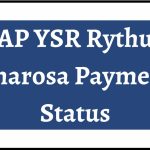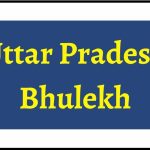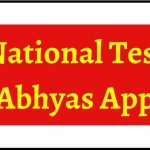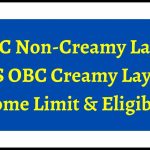CTET Syllabus 2024: The Central Board of Secondary Education CBSE conducts the Central Teacher Eligibility Test CTET. Candidates who aspire to be eligible for recruitment in Government schools as Teachers need to appear for this examination. This exam is conducted twice a year and the applicants need to observe that the mode of examination is online. The authorities in various schools often demand CTET as an eligibility condition. This examination acts as an eligibility and thus, the candidates must focus on passing it in order to gain it as a qualification.
The authorities have specified the details of the Syllabus on which they base the examination questions. Check the ensuing article carefully to complete Paper 1 and Paper 2 syllabus of the Central Teacher Eligibility Test CTET 2024. Also, download the respective pdf of these papers using the subsequent direct links.
Central Teacher Eligibility Test CTET Syllabus 2024
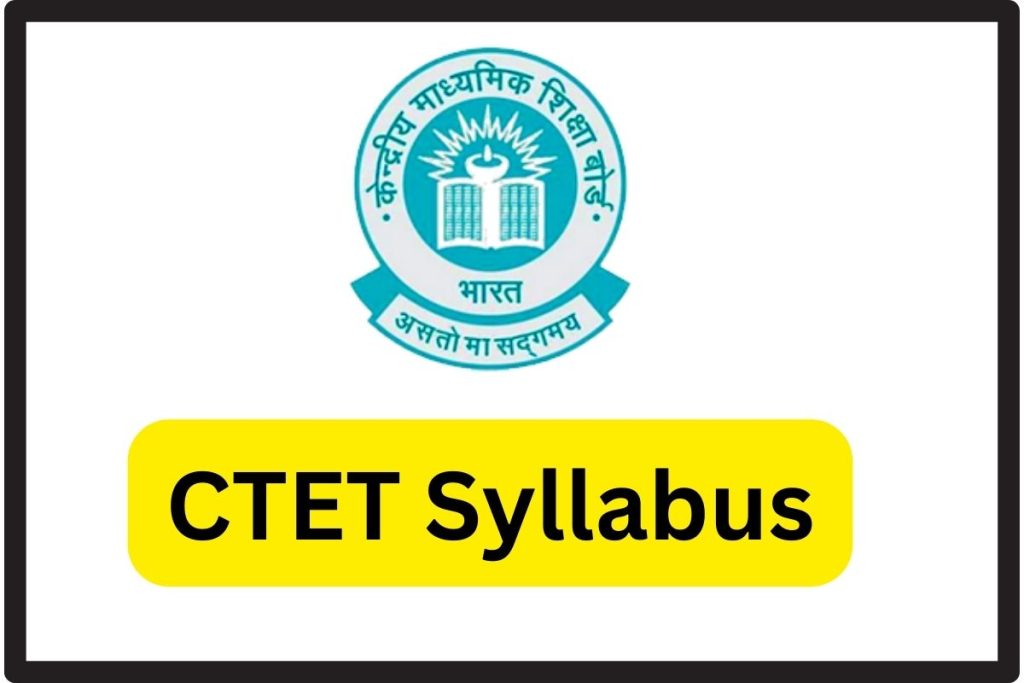
Aspirants for government teacher jobs have to take the Central Teacher Eligibility Test CTET 2024 compulsorily. The authorities at the Central Board of Secondary Examination prepare the question paper and conduct the examination. They have fixated on a very specific pattern of exams and the aspirants seek to prepare for it as per the same. Further, they have also declared a rigid line of the syllabus that the candidates have to take note of while preparing.
Paper 1 is conducted for teachers who focus on teaching Primary School Children while Paper 2 is conducted for those who aim to teach Secondary School Children. Additionally, one can appear for either Paper 1, Paper 2, or both.
The total marks of both papers are 150. The authorities award one mark for every correct answer that the candidates submit. Further, it has to be noted that there is no provision for negative marking. The candidates who pass CTET Paper 1 are qualified as Primary School Teachers while those who qualify for CTET Paper 2 qualify as Secondary School Teachers. Candidates who pass both the papers will qualify as both Primary School Teacher and Secondary School Teacher. Candidates of the General Category need 90 marks to be qualified, while those of reserved categories have to score 82 marks in order to pass.
Download here CTET Jan 2024 Admit Card
CTET Syllabus 2024: Exam Pattern for Paper I
The examination of Central Teacher Eligibility Test Paper 1 follows the ensuing pattern:
| S.No. | Section | Questions | Marks |
| 1. | Child Development and Pedagogy | 30 | 30 |
| 2. | Language – I | 30 | 30 |
| 3. | Language – II | 30 | 30 |
| 4. | Mathematics | 30 | 30 |
| 5. | Environmental Studies | 30 | 30 |
| Total | 150 | 150 |
CTET Paper 1 Syllabus 2024
Check the CTET Syllabus 2024 for Paper 1 subsequently:
| S.No. | Section | Topic | Number of Questions | Syllabus |
| 1. | Child Development and Pedagogy Syllabus | Child Development (Primary School Child) | 15 | Concept of development and its relationship with learning Principles of the Development of Children Influence of Heredity & Environment Socialization processes: Social world & children (Teacher, Parents, Peers) Piaget, Kohlberg and Vygotsky: constructs and critical perspectives Concepts of child-centred and progressive education Critical Perspective of the Construct of Intelligence Multi-Dimensional Intelligence Language & Thought Gender as a social construct; gender roles, gender bias and educational practice Individual differences among learners, understanding differences based on diversity of language, caste, gender, community, religion etc. The distinction between Assessment for learning and assessment of learning; School-Based Assessment, Continuous & Comprehensive Evaluation: perspective and practice Formulating appropriate questions for assessing the readiness levels of learners; enhancing learning and critical thinking in the classroom and assessing learner achievement. |
| Concept of Inclusive education and understanding children with special needs | 5 | Concept of Inclusive Education and understanding children with special needs | ||
| Learning and Pedagogy | 10 | How children think and learn; how and why children ‘fail’ to achieve success in school performance. Basic processes of teaching and learning; children’s strategies of learning; learning as a social activity; social context of learning. Child as a problem solver and a ‘scientific investigator’ Alternative conceptions of learning in children, understanding children’s ‘errors’ as significant steps in the learning process. Cognition & Emotions Motivation and learning Factors contributing to learning – personal & environmental | ||
| 2. | Language I | Language Comprehension | 15 | Reading unseen passages – two passages one prose or drama and one poem with questions on comprehension, inference, grammar and verbal ability (Prose passage may be literary, scientific, narrative or discursive) |
| Pedagogy of Language Development | 15 | Learning and acquisition Principles of Language Teaching Role of listening and speaking; function of language and how children use it as a tool A critical perspective on the role of grammar in learning a language for communicating ideas verbally and in written form Challenges of teaching language in a diverse classroom; language difficulties, errors and disorders Language Skills Evaluating language comprehension and proficiency: speaking, listening, reading and writing Teaching-learning materials: Textbook, multi-media materials, multilingual resources of the classroom Remedial Teaching | ||
| 3. | Language II | Comprehension | 15 | Two unseen prose passages (discursive or literary or narrative or scientific) with questions on comprehension, grammar and verbal ability |
| Pedagogy of Language Development | 15 | Learning and acquisition Principles of Language Teaching Role of listening and speaking; function of language and how children use it as a tool A critical perspective on the role of grammar in learning a language for communicating ideas verbally and in written form; Challenges of teaching language in a diverse classroom; language difficulties, errors and disorders Language Skills Evaluating language comprehension and proficiency: speaking, listening, reading and writing Teaching-learning materials: Textbook, multi-media materials, multilingual resources of the classroom Remedial Teaching | ||
| 4. | Mathematics | Content | 15 | Geometry, Shapes and Spatial Understanding, Solids around Us, Numbers, Addition and, Subtraction, Multiplication, Division, Measurement, Weight, Time, Volume, Data Handling, Patterns, and Money |
| Pedagogical Issues | 15 | Nature of Mathematics or Logical thinking; understanding children’s thinking and reasoning patterns and strategies for making meaning and learning Place of Mathematics in Curriculum Language of Mathematics Community Mathematics Valuation through formal and informal methods Problems of Teaching Error analysis and related aspects of learning and teaching Diagnostic and Remedial Teaching | ||
| 5. | Environmental Studies | Content | 15 | Family and Friends: Relationships, Work and Play, Animals, Plants Food Shelter Water Travel Things We Make and Do |
| Pedagogical Issues | 15 | Concept and scope of EVS Significance of EVS integrated EVS Environmental Studies and Environmental Education Learning Principles Scope and Relation to Science and Social Science Approaches of presenting concepts Activities Experimentation or Practical Work Discussion CCE Teaching material or Aids Problems |
CTET Paper II Pattern
The Central Teachers Eligibility Test CTET is set on the ensuing pattern:
| S.No. | Section | Questions | Marks |
| 1. | Child Development and Pedagogy | 30 | 30 |
| 2. | Language I | 30 | 30 |
| 3. | Language II | 30 | 30 |
| 4. | Mathematics and Science or Social Studies and Social Science | 60 | 60 |
| Total | 150 | 150 |
CTET Syllabus 2024 for Paper 2
Check the following CTET Syllabus 2024 for Paper 2:
| S.No. | Section | Topic | Number of Questions | Syllabus |
| 1. | Child Development and Pedagogy | Child Development: Elementary School Child | 15 | Concept of development and its relationship with learning Principles of the Development of Children Influence of Heredity and Environment Socialization processes: Social world and children (Teacher, Parents, Peers) Piaget, Kohlberg and Vygotsky: constructs and critical perspectives Concepts of child-centred and progressive education Critical Perspective of the Construct of Intelligence Multi-Dimensional Intelligence Language and Thought Gender as a social construct; gender roles, gender bias and educational practice Individual differences among learners, understanding differences based on diversity of language, caste, gender, community, religion etc. The distinction between Assessment for learning and assessment of learning; School-Based Assessment, Continuous and Comprehensive Evaluation: perspective and practice Formulating appropriate questions for assessing the readiness levels of learners; enhancing learning and critical thinking in the classroom and assessing learner achievement. |
| Concept of Inclusive Education and Understanding Children with special needs | 5 | Concept of Inclusive Education and understanding children with special needs | ||
| Learning and Pedagogy | 10 | How children think and learn; how and why children ‘fail’ to achieve success in school performance. Basic processes of teaching and learning; children’s strategies of learning; learning as a social activity; social context of learning. Child as a problem solver and a ‘scientific investigator’ Alternative conceptions of learning in children, understanding children’s ‘errors’ as significant steps in the learning process. Cognition and Emotions Motivation and learning Factors contributing to learning – personal and environmental | ||
| 2. | Language I | Language Comprehension | 15 | Reading unseen passages – two passages one prose or drama and one poem with questions on comprehension, inference, grammar and verbal ability. |
| Pedagogy of Language Development | 15 | Learning and acquisition Principles of Language Teaching Role of listening and speaking; function of language and how children use it as a tool A critical perspective on the role of grammar in learning a language for communicating ideas verbally and in written form; Challenges of teaching language in a diverse classroom; language difficulties, errors and disorders Language Skills Evaluating language comprehension and proficiency: speaking, listening, reading and writing Teaching-learning materials: Textbook, multi-media materials, multilingual resources of the classroom Remedial Teaching | ||
| 3. | Language II | Comprehension | 15 | Two unseen prose passages (discursive or literary or narrative or scientific) with questions on comprehension, grammar and verbal ability |
| Pedagogy of Language Development | 15 | Learning and acquisition Principles of Language Teaching Role of listening and speaking; function of language and how children use it as a tool A critical perspective on the role of grammar in learning a language for communicating ideas verbally and in written form; Challenges of teaching language in a diverse classroom; language difficulties, errors and disorders Language Skills Evaluating language comprehension and proficiency: speaking, listening, reading and writing Teaching-learning materials: Textbook, multi-media materials, multilingual resources of the classroom Remedial Teaching | ||
| 4. | Mathematics and Science | Mathematics Content | 20 | Number System, Knowing our Numbers, Playing with Numbers, Whole Numbers, Negative Numbers and Integers, Fractions, Algebra, Introduction to Algebra, Ratio and Proportion, Geometry, Basic geometrical ideas (2-D), Understanding Elementary Shapes (2-D and 3-D), Symmetry: (reflection), Construction (using Straight edge Scale, protractor, compasses), Mensuration, Data handling |
| Mathematics Pedagogical issues | 10 | Concept and Nature of Social Science or Social Studies Class Room Processes, activities and Discourse Developing Critical thinking Enquiry or Empirical Evidence Problems of Teaching Social Science or Social Studies Sources – Primary and Secondary Projects Work Evaluation | ||
| Science Content | 20 | Food: Sources of food, Components of food, and Cleaning food Materials: Materials of daily use The World of the Living: Moving, Things People and Ideas, How things work, Electric Current and Circuits, and Magnets Natural Phenomena VNatural Resources | ||
| Science Pedagogical Issues | 10 | Nature and Structure of Sciences, Natural Science or Aims and objectives, Understanding and Appreciating Science, Approaches or Integrated Approach, Observation or Experiment or Discovery (Method of Science), Innovation, Text Material or Aids, Evaluation – cognitive or psychomotor or affective, Problems, and Remedial Teaching | ||
| 5. | Social Studies and Social Sciences | History, Geography, Social and Political Life | 40 | History: When, Where and How, The Earliest Societies, The First Farmers and Herders, The First Cities, Early States, New Ideas, The First Empire, Contacts with Distant lands, Political Developments, Culture and Science, New Kings and Kingdoms, Sultans of Delhi, Architecture, Creation of an Empire, Social Change, Regional Cultures, The Establishment of, Company Power, Rural Life and Society, Colonialism and Tribal Societies, The Revolt of 1857-58, Women and reform Challenging the Caste System, The Nationalist Movement, and India After Independence Geography: Geography as a social study and as a science, Planet: Earth in the solar system, Globe, The environment in its totality: natural and human environment, Air, Water, Human Environment: settlement, transport and communication, Resources: Types-Natural and Human, and Agriculture Social and Political Life: Diversity, Government, Local Government, Making a Living, Democracy, State Government, Understanding Media, Unpacking Gender, The Constitution, Parliamentary Government, The Judiciary, Social Justice and the Marginalised |
| Pedagogical Issues | 20 | Concept and Nature of Social Science or Social Studies Class Room Processes, activities and Discourse Developing Critical thinking Enquiry or Empirical Evidence Problems of Teaching Social Science or Social Studies Sources – Primary and Secondary Projects Work Evaluation |
Common Teacher Eligibility Test Language Section
In Paper 1 and 2 of the Central Teachers Eligibility Test CTET, the Central Board of Secondary Education CBSE offers the ensuing 20 options for choosing Language 1 and 2:
- English
- Hindi
- Garo
- Gujarati
- Assamese
- Bangla
- Kannada
- Khasi
- Marathi
- Malayalam
- Manipuri
- Mizo
- Nepali
- Sanskrit
- Tamil
- Oriya
- Punjabi
- Telugu
- Tibetan
- Urdu

